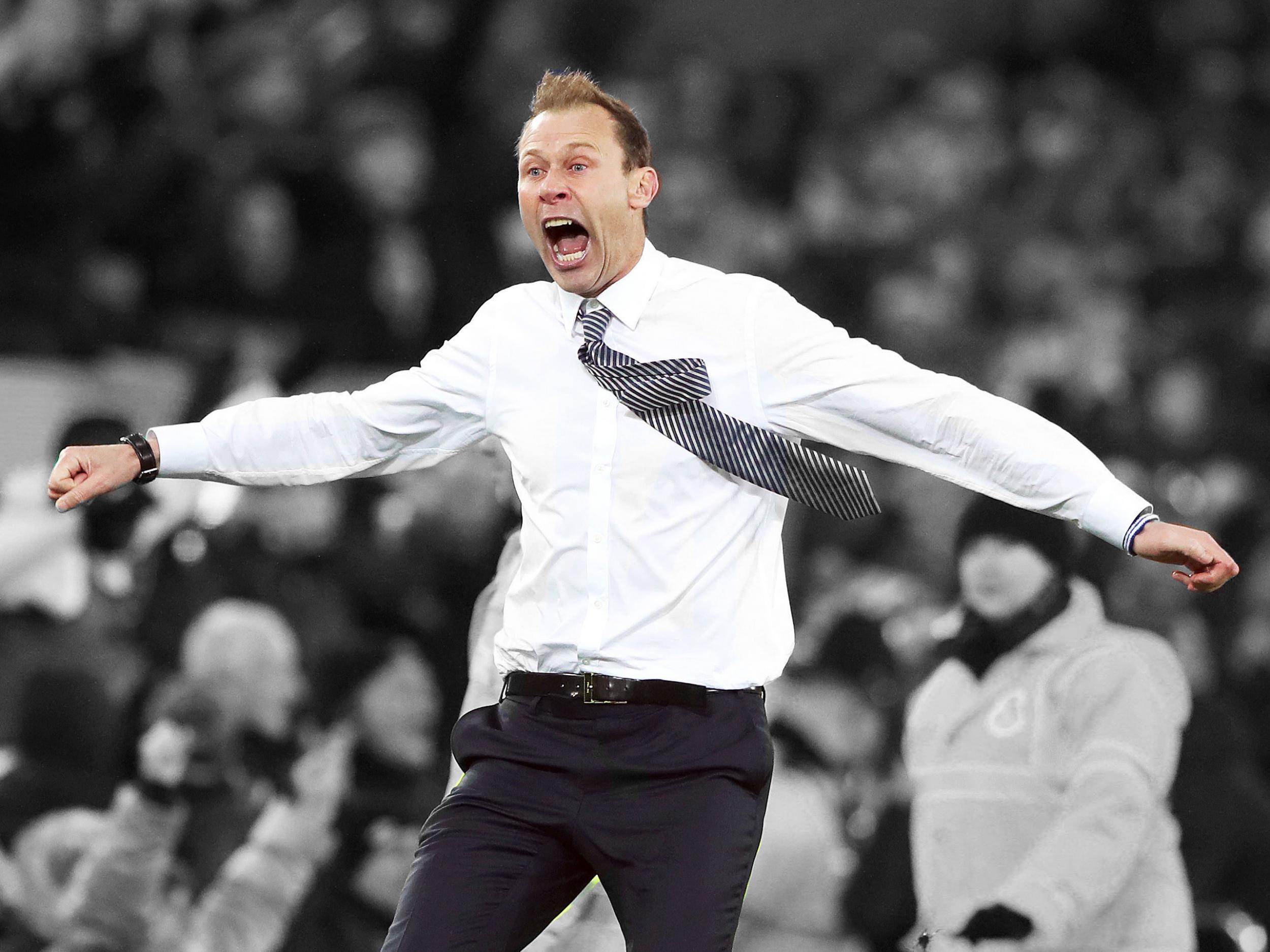Duncan Ferguson’s fury of emotion has galvanised Everton – but Carlo Ancelotti inherits an almighty task
Caretaker is man and myth in one, part Howard Kendall, part William Wallace

Your support helps us to tell the story
From reproductive rights to climate change to Big Tech, The Independent is on the ground when the story is developing. Whether it's investigating the financials of Elon Musk's pro-Trump PAC or producing our latest documentary, 'The A Word', which shines a light on the American women fighting for reproductive rights, we know how important it is to parse out the facts from the messaging.
At such a critical moment in US history, we need reporters on the ground. Your donation allows us to keep sending journalists to speak to both sides of the story.
The Independent is trusted by Americans across the entire political spectrum. And unlike many other quality news outlets, we choose not to lock Americans out of our reporting and analysis with paywalls. We believe quality journalism should be available to everyone, paid for by those who can afford it.
Your support makes all the difference.On a day when one Merseyside club reached the World Club Cup final, the other exited the Carabao Cup. Such is Everton’s lot in life and if comparisons with their neighbours are inevitable, they are also unflattering. Even as Everton hope to confirm the most glamorous ever managerial appointment, the reality is that the serial medal-winner Carlo Ancelotti will inherit a club on the longest trophy drought in its history and, with an FA Cup tie at Anfield next month, the probability it will extend into a 26th season.
A triple Champions League winner may not be a shortcut to glory. An icon from the past was not, either. Duncan Ferguson was a member of that 1995 FA Cup-winning team. His interim regime has made for compelling viewing but if a totemic figure was swinging ball-boys around in celebration again when Leighton Baines delivered a magnificent injury-time equaliser, the sense of narrative that has seemed to power Ferguson’s comeback to prominence was lost when Kasper Schmeichel’s acrobatics decided the shootout and sent Leicester into a semi-final against Aston Villa.
“I thought it was written in the stars once Leighton sticks that in the top corner,” Ferguson said. Baines scored his first goal for 760 days but missed his spot-kick. He and Seamus Coleman have made a combined 713 appearances for Everton but two of their great 21st Century servants may end with no silverware to show for their efforts. “I am devastated for him and Seamus who have put so much into the club,” said Ferguson. He seemed to be welling up himself; it has been a constant theme in each of his three games at the helm. “There are a lot of tears in there,” he said. “They are gutted in there. I am devastated for the fans not to get to the semi.”
Emotion has been an ever-present in his tenure. Brendan Rodgers has been more consciously calm, more restrained in his rhetoric at Leicester than he was at Liverpool. Ferguson felt his opposite. Leicester out-footballed Everton for much of the match. Ferguson’s answer came in part from spirit. “He has done absolutely brilliant to galvanise the team,” Rodgers said. “He is a true Evertonian who loves the club and has a passion for it.”
Rodgers spent the majority of the evening on the left of his technical area, nearest the Gwladys Street End, furthest from Ferguson. They were separated from a few yards. They seem to come from different footballing planets. Ferguson is man and myth in one, part Howard Kendall, part William Wallace. Death by football versus death by Duncan, perhaps.
Rodgers exposed Ferguson in the first half. “We were too passive,” said the Scot. Much of Rodgers’ tactics are based on having numerical superiority in the centre of midfield. Ferguson’s preference for 4-4-2 invariably leaves his side outnumbered. There was a mitigating factor – “we were doon to the bare bones,” he said, like a Scottish Harry Redknapp – and injuries meant Mason Holgate had to continue in midfield but Leicester outmanoeuvred Everton, freeing the scorer James Maddison and Dennis Praet, with the insurance policy of Wilfred Ndidi behind them.
Ferguson changed to add a third central midfielder but Everton’s Bravehearts were roused by belief as much as subtlety, revived by the irresistible cocktail of momentum, energy and inspiration. Tom Davies and Baines scored spectacular goals. Rodgers was left scratching his head in bemusement. “At the end of the game, you are wondering how we hadn’t closed it out,” he reflected.

Penalties sufficed instead. Rodgers’ attention to detail – his side had practised on Tuesday and, after Maddison missed their first, converted the next four coolly – paid off. Leicester are in the last four. Ferguson probably has a fourth and last game of his extraordinary interregnum. He is set to be in the dugout again against Arsenal.
“I have talked to the owners and the directors,” he said. “I would think I would be in for Saturday.” Then he will revert to being the supersized sidekick, the cult hero on the coaching staff. But his catalytic impact left Rodgers mooting the possibility that Ferguson could eventually replace Ancelotti. “He has the real DNA of Everton,” said the Leicester manager. “If it is not his time this time, I am pretty sure it will be in the future.”
Join our commenting forum
Join thought-provoking conversations, follow other Independent readers and see their replies
Comments